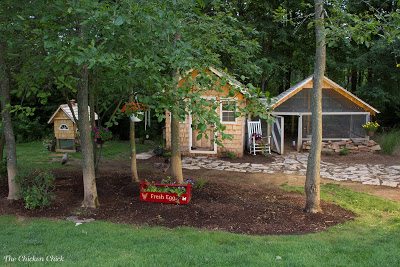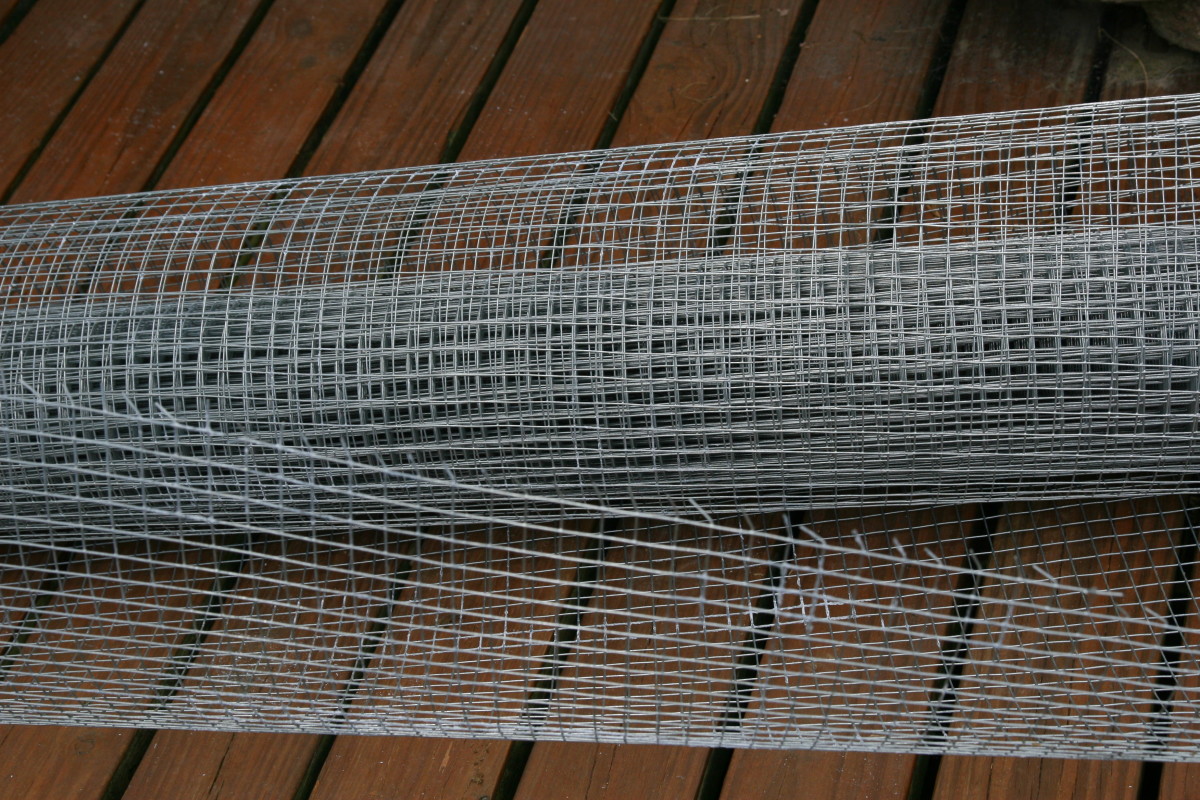If you're thinking about raising chickens, you probably already know that keeping them safe from predators is one of the most important things you can do. That's why it's essential to have a good chicken coop that can keep out all kinds of dangerous animals. Here are a few tips on how to build a predator-proof chicken coop:
Example Of Open Front Chicken Coop! 4 Proven Factors!

What is a predator-proof chicken coop?
A predator-proof chicken coop is a structure designed to keep chickens safe from predators such as raccoons, foxes, coyotes, and even birds of prey. These coops are usually made of wood, wire mesh, and other materials that prevent predators from getting inside.
Why do you need a predator-proof chicken coop?
If you're raising chickens, you need a predator-proof chicken coop to protect your birds from danger. Predators like raccoons, foxes, and coyotes are common in many parts of the country, and they can easily kill or injure your chickens if they get inside the coop. By building a predator-proof chicken coop, you can keep your birds safe and ensure that they have a healthy environment to live in.
What are the different types of predator-proof chicken coops?
There are many different types of predator-proof chicken coops, including:
- Traditional Coops: These are small wooden structures with wire mesh windows and doors that can be locked to keep predators out. They usually have a roof covered with shingles or other materials to keep the rain and snow out.
- Mobile Coops: These are coops on wheels that can be moved around the yard. They usually have four wheels and a handle that you can use to pull the coop around. These coops are great for people who want to keep their chickens in a small area but still want to be able to move the coop around if they need to.
- Chicken Tunnels: These are tunnels made of wire mesh that run from the chicken coop to an enclosed area outside. The chickens can walk through the tunnel to get to the outside area and back to the coop when they need to. These tunnels are great for people who want to keep their chickens safe but still want to give them some outdoor space to roam around in.
What are the key features of a predator-proof chicken coop?
When designing a predator-proof chicken coop, there are a few key features you should include:
- Sturdy construction: A good chicken coop should be sturdy enough to stand up to wind, rain, and snow. It should be made of strong materials like wood, wire mesh, and metal.
- Secure doors: The doors on a chicken coop should be made of strong materials like wood or metal and should have hinges and locks that work well. You should also make sure that there are no gaps around the doors where predators can get in.
- Good ventilation: A chicken coop should have good ventilation to allow fresh air to circulate. This helps to prevent moisture from building up inside the coop, which can lead to health problems for your birds.
- Roosting perches: Chickens like to perch at night, so make sure your coop has plenty of roosting perches. These perches should be placed high enough off the ground that predators can't reach them.
What are the benefits of a predator-proof chicken coop?
There are many benefits to building a predator-proof chicken coop, including:
- Protecting your chickens: A predator-proof chicken coop can help to keep your chickens safe from predators and other dangers.
- Providing a healthy environment: A good chicken coop can provide your birds with a healthy environment that's free of parasites and other problems.
- Reducing stress: When chickens feel safe and secure, they're less stressed. This can lead to better egg production and overall health.
- Saving money: By building your own chicken coop, you can save money on eggs and meat, as well as on vet bills and other expenses.
How do you build a predator-proof chicken coop?
Building a predator-proof chicken coop is easy if you follow these basic steps:
- Choose a location: Choose a flat, dry spot that's far away from trees and other places where predators might hide. Make sure the spot is large enough to accommodate your chicken coop and any other structures you plan to build.
- Design the coop: Decide on the size and shape of your chicken coop and make a plan for how you're going to build it. Remember to include all of the key features we discussed earlier.
- Gather materials: Gather all of the materials you'll need to build your chicken coop, including wood, wire mesh, hardware, and any other materials required by your design.
- Build the frame: Start by building the frame of your chicken coop. Use strong materials like 2x4-inch lumber to ensure that the frame is sturdy.
- Add wire mesh: Add wire mesh to the sides, roof, and floor of your chicken coop. Make sure the mesh is strong enough to keep predators out.
- Install doors: Install doors on your chicken coop that are made of strong materials like wood or metal and have hinges and locks that work well.
- Add roosting perches: Install roosting perches inside your chicken coop that are high enough off the ground to keep predators from reaching them.
- Add nesting boxes: Add nesting boxes to your chicken coop where your hens can lay their eggs.
- Add food and water: Add food and water to your chicken coop to keep your birds nourished and hydrated.
What are some tips for maintaining a predator-proof chicken coop?
Here are a few tips for maintaining your predator-proof chicken coop:
- Keep the coop clean: Regularly clean your chicken coop to prevent parasites and other problems.
- Check for damage: Regularly check your chicken coop for damage and repair any problems as soon as possible.
- Secure the area around the coop: Make sure the area around your chicken coop is secure and free of debris that could attract predators.
- Observe your chickens: Watch your chickens regularly to make sure they're healthy and happy. If you notice any problems, take action right away.
By following these tips and building a predator-proof chicken coop, you can keep your birds safe from harm and enjoy the many benefits of raising chickens at home.
Chickens, Predators and The Myth of Supervised Free Range

What is supervised free range?
Supervised free range is a way of keeping chickens that involves allowing them to roam freely outside during the day while keeping them in a predator-proof coop at night. The idea is that chickens are happier and healthier when they have the freedom to move around and forage for their own food.
Why is supervised free range a myth?
While supervised free range may sound like a good idea, it's actually not very practical or safe for your chickens. Here are a few reasons why:
- Predators: Leaving your chickens outside during the day can make them vulnerable to predators like raccoons, foxes, and even dogs and cats. Even if you're watching them closely, it only takes a few seconds for a predator to attack.
- Parasites and diseases: Allowing your chickens to roam free can also expose them to parasites and diseases that could make them sick. Birds of prey like hawks and eagles can also pose a risk.
- Neighbor complaints: If you live in a residential area, your neighbors may not appreciate having chickens roaming around their yard. This could lead to complaints or even legal trouble.
What's the alternative to supervised free range?
The best alternative to supervised free range is to have a predator-proof chicken coop that your birds can go in and out of as they please. This way, they can still get fresh air and exercise during the day, but they're protected from predators and other dangers. Many coops also come with attached outdoor runs or enclosures that allow your chickens to move around freely in a protected area.
How to Make Your Chicken Coop Predator-Proof

How can you make your chicken coop predator-proof?
Making your chicken coop predator-proof involves taking a few basic steps:
- Choose the right location: Choose a location that's far away from trees and other places where predators might hide. Make sure the spot is large enough to accommodate your chicken coop and any other structures you plan to build.
- Use strong materials: Use strong materials like wood and wire mesh to build your chicken coop. Make sure there are no gaps between the wire mesh where predators can get in.
- Install sturdy doors: Install sturdy doors on your chicken coop that are made of wood or metal and have hinges and locks that work well. Make sure the doors are solid and fit tightly.
- Add roosting perches: Install roosting perches inside your chicken coop that are high enough off the ground to keep predators from reaching them.
- Add outdoor enclosures: Add enclosed outdoor areas to your chicken coop where your chickens can move around freely without being in danger.
What are some common predators of chickens?
There are many predators that pose a threat to chickens, including:
- Raccoons: Raccoons are known for their intelligence and dexterity, which allows them to easily open doors and tear through wire mesh to get to chickens.
- Foxes: Foxes are fast and agile predators that can easily jump over fences and sneak into chicken coops.
- Coyotes: Coyotes are nocturnal predators that can climb fences, dig under them, or jump over them to get to chickens.
- Birds of prey: Hawks, eagles, and other birds of prey are also a threat to chickens, especially small chicks or bantams.
How To Keep Predators From Digging Under Chicken Coop

How can you keep predators from digging under your chicken coop?
Keeping predators from digging under your chicken coop involves taking a few simple steps:
- Use hardware cloth: Hardware cloth is a type of mesh wire that is harder for predators to dig through than regular wire mesh. You can use hardware cloth to line the bottom of your chicken coop to prevent predators from digging in.
- Bury the wire: If you're worried about predators digging under your chicken coop, you can bury the wire around the perimeter to make it harder for them to get in.
- Add a skirt: Another option is to add a skirt made of hardware cloth around the perimeter of your chicken coop. This makes it harder for predators to dig in and gives you an extra layer of protection.
Top Chicken Predators for Backyard and Urban Homesteaders

What are the top chicken predators for backyard and urban homesteaders?
There are many predators that pose a threat to backyard and urban homesteaders who raise chickens. Here are a few of the most common:
- Raccoons: Raccoons are one of the most common predators of backyard and urban chickens. They are intelligent and dexterous, which allows them to easily open doors and tear through wire mesh to get to chickens.
- Foxes: Foxes are fast and agile predators that can easily jump over fences and sneak into chicken coops.
- Coyotes: Coyotes are nocturnal predators that can climb fences, dig under them, or jump over them to get to chickens.
- Birds of prey: Hawks, eagles, and other birds of prey are also a threat to backyard and urban chickens, especially small chicks or bantams.
- Dogs and cats: Dogs and cats that wander into your yard can also be a danger to your chickens. Make sure you supervise your pets and keep them away from your birds.
By building a predator-proof chicken coop and taking steps to keep predators from digging under it, you can keep your chickens safe and give them a healthy environment to live in.